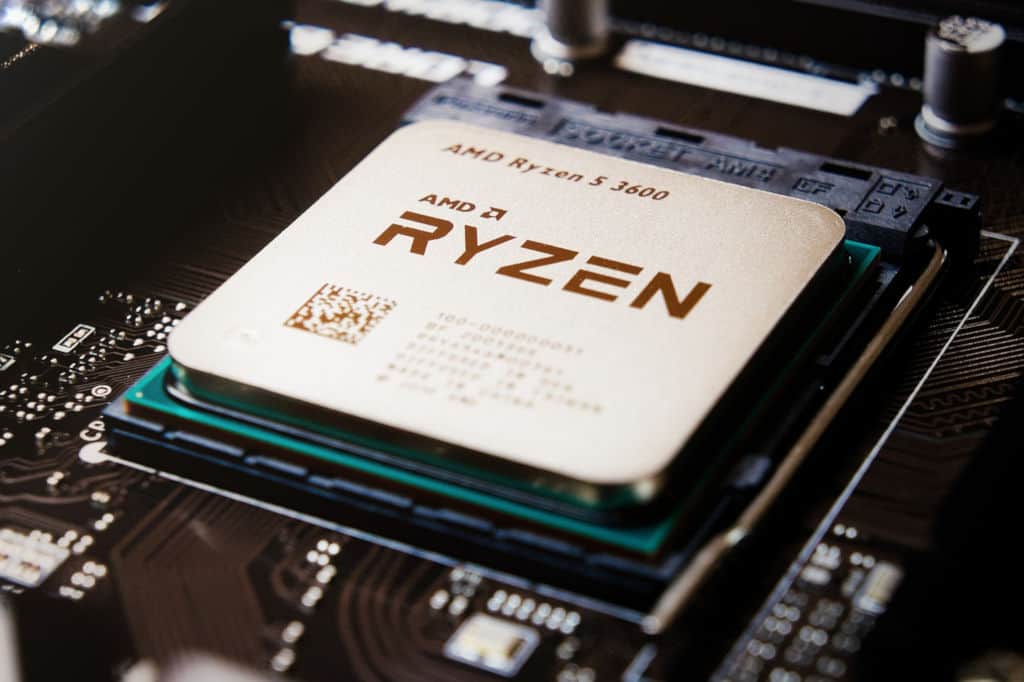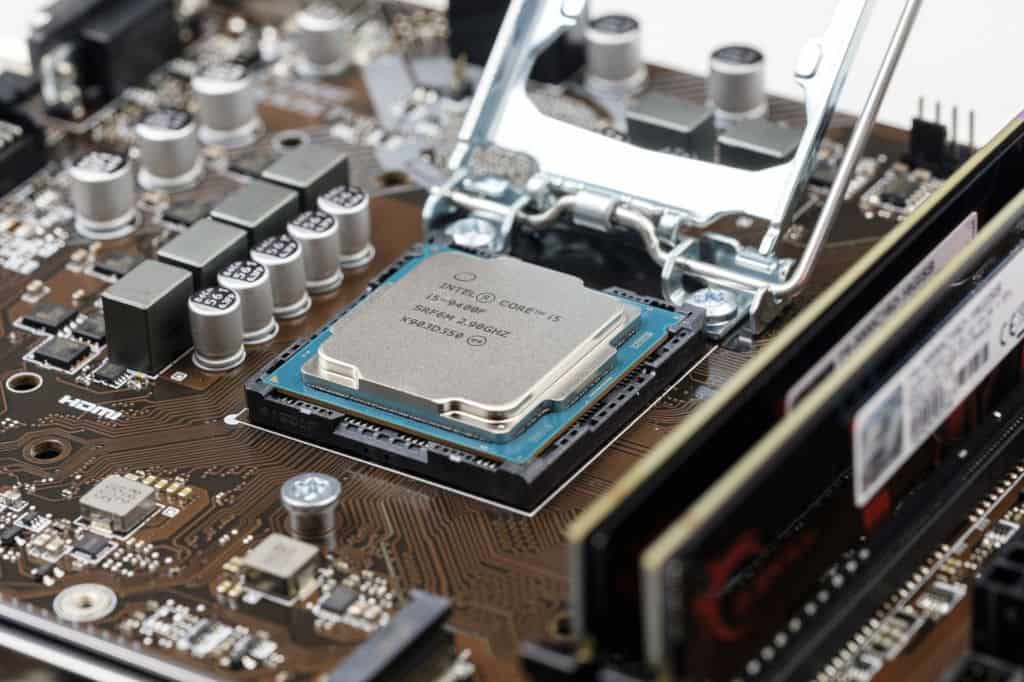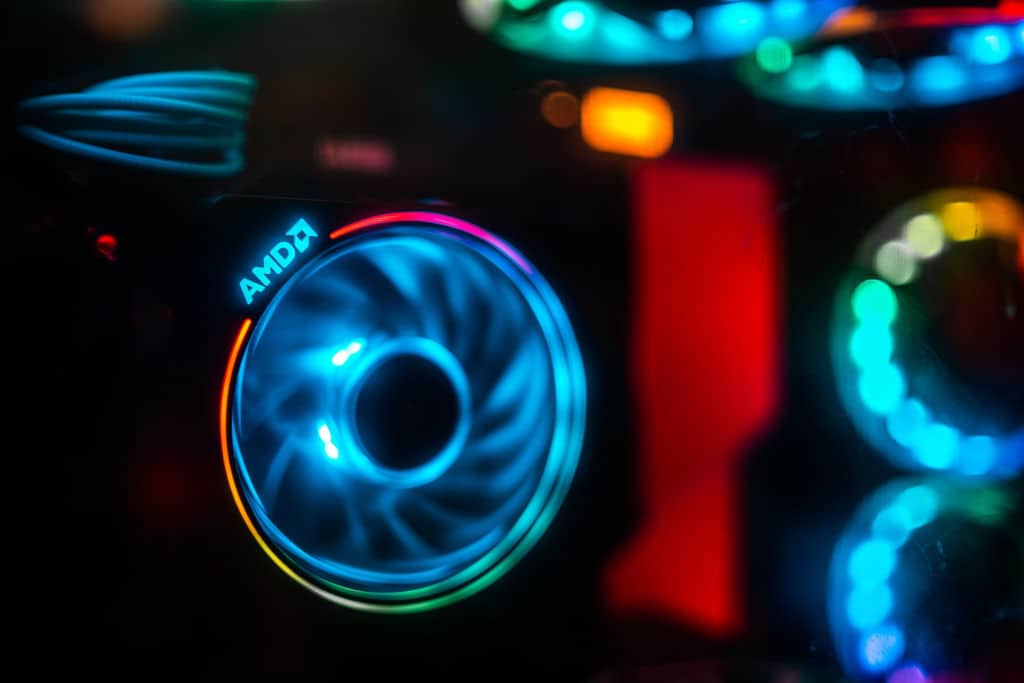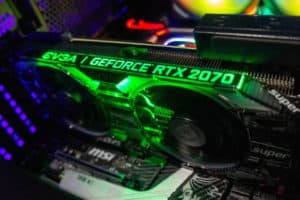Many times when the computer doesn’t turn on, or it shuts down unexpectedly we think of the CPU. However, CPU lifespan is longer than most other components, and when this happens it’s usually some other part that failed, not the CPU.
Both Intel and AMD CPU should realistically last you 5 to 10 years on average, usually well past what we consider their “usefulness”. An overclocked CPU heavily used will last for at least 3 to 5 years, while the CPU on factory settings used for generic work can last for 6 to 10 years or longer.
CPUs are highly durable and rarely fail. If you asked a PC tech who’s been repairing computers for a living, they’ll tell you they had only a few faulty CPUs (if any) in their entire career.
What usually happens is that some other part failed: motherboard, power supply, GPU, RAM, or something else, which caused a system failure. Before you start suspecting the CPU, try to run a few tests mentioned below to see how your other components are performing.
Disclaimer: Some of the links in this article are affiliate links that may provide me with a small commission at no cost to you. I only recommend only the best products and services. Read about affiliate disclosure in my privacy policy.
How Long Do CPUs Last?
CPU lifespan will mostly depend on how you use it and take care of it. If you pay attention to temperatures and the CPU usage is normal, they can last you for 5 to 10 years of general use. If you overclock, then they might degrade a bit faster, but still very slowly.
Processors last for a very long time, and almost everything else will fail before the CPU. Not only because they are made well, but also because there are many safety features in place to protect the CPU.
Ensuring adequate ventilation for your PC setup and keeping your system dust-free can significantly enhance the longevity of not just the CPU but all components. A regular monthly or bi-monthly clean-up schedule is a good practice.

Usually, one of three things happen to prevent a CPU failure:
- The motherboard will detect really high temps and trigger a shutdown
- The CPU will detect really high temps and trigger a shutdown or bluescreen
- The CPU has an error because of high temps before any of the previous two detections, and the computer either shuts off or goes into bluescreen.
Because of this, the CPU is almost always protected from catastrophic failure.
Manufacturers rigorously test CPUs through a process called ‘binning’, ensuring that the chips meet certain performance and reliability standards. This ensures that when you purchase a CPU, it’s already proven to function under a variety of conditions.
CPUs are highly durable, and the most likely thing that will kill them is the physical damage of the pins, or running at high temperatures of above 85°C (185°F) for prolonged periods.
Related: How much CPU usage is normal?
What are the signs of a dead or failing CPU?
Here are some of the signs of a dead or failing CPU:
- can’t turn on, or boot the computer
- computer is lagging or freezing
- system shuts down unexpectedly
- system goes into BSOD (blue screen of death)
- physical damage to pins
Additionally, unexpected restarts or the inability of the PC to maintain consistent power can also hint at potential issues with the CPU, especially if other components have been ruled out.
Keep in mind that even though you may have one or two of these symptoms, it could be another component that failed, not the CPU. For example, failure to boot is a symptom of failure for both the CPU and the motherboard.
If something failed it’s probably not the CPU – do these tests
Many times it isn’t the CPU that failed, but some other component, such as a PSU (Power Supply Unit), motherboard, or a GPU (graphics card).
You can test your power supply with a paperclip method, and you can test your motherboard by looking at its diagnostic lights (if it has any), and by looking for anything chipped, burnt, cracked, or fractured. If the motherboard has physical damage, it should be replaced.
You can test your GPU by using software such as GPU-Z and running a stress test. Most of the time, it’s the motherboard that dies first, however, a GPU can also fail much more frequently than a CPU, mostly because GPU usage is sometimes very high, especially when gaming or mining.
It’s worth investing in dedicated GPU coolers or external GPU solutions if you’re pushing your graphics card to its limits regularly. This ensures that neither the GPU nor the CPU experiences unnecessary strain.
How Long Do Intel Processors Last?
Intel processors can last as much as AMD ones, and that’s usually at least 5 years, if not 10 or longer, depending on how you use it. A high-value Intel CPU such as i5-11400F cooled properly, and used in a system with good components can last for decades.
Intel processors degrade over time, but the degradation is so slow that you’ll never notice it.
Their lifespan is often beyond 10 years, and what will be most noticeable is not the degradation of the CPU, but the lack of requirements for the newer technology and software.

Any difference in how long do i3, i5, i7 and i9 CPUs last?
Whether i3, i5, i7, or i9, the Intel CPU will usually last at least 3 to 5 years of highly intensive use in gaming or graphic design. In moderation, however, for less demanding software and occasional gaming, you can expect at least 5 years, but usually longer.
How often do Intel CPUs fail?
The failure rate is extremely low for Intel CPUs, and it shouldn’t be your main worry. Not only is it difficult to measure the failure rate, but it’s so rare that it’s not really an issue. Most likely some other component will fail first, or you’ll upgrade before any kind of CPU degradation becomes noticeable.
How Long Do AMD Processors Last?
AMD CPUs are highly durable, secure, and will last for at least 5, but usually 7-10 years if you maintain them and watch the temps. AMD has innovated a lot in their production of CPUs, so their CPU longevity is not really an issue.
Additionally, AMD’s Precision Boost and Infinity Fabric technologies are designed to optimize performance without unduly stressing the chip, contributing further to its durability.
A great bang for the buck CPU, such as AMD Ryzen Threadripper 1900X is a great investment, and with proper cooling, this CPU can last for at least 5 years, generally longer.
How long do Ryzen CPUs last?
AMD’s Ryzen CPUs offer an exceptional value for the money and will last you for much longer than you’ll need them, usually 5 to 10 years. You’ll probably replace them much sooner than they start degrading. Just take a look at these CPU benchmark scores to see how good of a value you can get for the money.
I have Ryzen 5 3600, which is probably one of the best CPUs you can get for the money. Before that, I had Ryzen 5 2600x and had zero problems.

How often do Ryzen CPUs fail?
Ryzen CPUs fail as much as Intel CPUs, and that’s very rarely. In general, CPUs do not fail that often, and Ryzen is no exception. Ryzen CPUs are highly resilient and generally work in higher temperatures compared to Intel CPUs.
Both desktop and laptop Ryzen CPUs are highly durable, and failure is extremely rare. There’s been some news about Ryzen 5000 high failure rate, but after some research, we concluded this claim is unsubstantiated and test results don’t represent most other experiences at other vendors and testers.
How Long Do Laptop Processors Last?
Laptop processors can last almost as long as desktop processors if you take care of them. This means regularly removing dust (just blow into ventilators occasionally) and paying attention to temperatures. Unless you need it for heavy gaming or graphic design, your laptop CPU can last for 6 to 10 years.
Laptop CPU lifespan will depend on the quality of the parts, how you use them, and your expectations from it. Small tip: have your laptop be above the ground for at least ¼-½ of an inch to reduce temperatures.
How Long Do Phone Processors Last?
Smartphone chips wear out slightly over time, but very slowly. Some phones can last for 4-5 years without any issues, such as Samsung, while some mid-range phones may start having issues only after 2 years. iPhones get around 5 years worth of software updates, but this period is increasing over time.
Generally, iPhones last longer and hold their value better than comparable Android phones, but a lot will depend on how you use them, and how fast of a smartphone do you need.
How Long Does a CPU Last for Gaming?
If the CPU is properly cooled to safe temperatures (usually below 85°C/185°F) then you can expect it to last for at least 3 to 5 years while gaming, usually longer. To increase the longevity of your gaming CPU, try to use some kind of temperature monitoring software, such as HWiNFO, and set up a few alarms for high temps with it, just in case.
How Long Do Overclocked CPUs Last?
Depending on the cooling, the brand, and your general use of the computer, overclocked CPUs can last for 3-5 years at least, which is usually more than enough time to upgrade. As long as you keep your voltages and temperatures in a safe range, there’s nothing to worry about.
Heat and voltage are the biggest enemies of overclocking (OCing). They affect both the CPU and the surrounding components of your PC.
So, if you keep them in check, then both your CPU and the other components will remain in good shape for a long time.
How Long Can a CPU Last Without Thermal Paste?
CPUs usually can’t be run without a thermal paste for longer than a few seconds, up to a few minutes at best. Without thermal paste, the CPU will overheat and will probably shut itself down to prevent damage.
Depending on the CPU model and whether it’s a laptop or desktop, you may get a few minutes out of it, but you risk damaging the CPU and shortening its lifespan. It’s never a good idea to do this, and you should always consider adding thermal paste before turning on your PC. You can order a high-quality budget thermal paste from Amazon, such as this ARCTIC MX-4.
How Long Can a CPU Last Without a Cooler or Heatsink?
Without a heatsink, the CPU will overheat and either shut down or be damaged within seconds. You probably won’t be able to boot up your PC at all. It’s similar if you try with a heatsink and without a cooler, and while you may get a few minutes, you risk damaging the CPU.
CPUs heat up very quickly, and they auto shutdown due to high temperatures. Don’t do this test, if you don’t have to.
It is never a good idea to run the CPU without a heatsink, not even to boot it up. And never, ever try to flash your bios without a heatsink attached. Trust me on this one.

How Long Can a CPU Last at 90°C or 100°C?
The real answer is: forever, or as long as the system doesn’t shut down because of high temperatures. If there’s any danger, the CPU will slow itself down, or the system will shut down due to unsafe temps.
A few minutes of stress test may not hurt the CPU, but prolonged periods of 90°/100°C (194°F/212°F) on the CPU will probably shorten its lifespan and will cause degradation that may affect its long term functionality, and stability.
That’s the main problem as far as the CPU goes, degradation of the CPU. Running a few tests at this temperature won’t damage it, but having consistently high temps of above 85°C (185°F) will degrade your processor fast, and may shorten its lifespan to only a few years, or even months.
In addition, the thermal shock from the high temps will affect components other than the CPU long before the CPU chips are affected, and this will cause problems for your system in general.
FAQs
How long do CPU fans last?
CPU fans last anywhere from 2 to 10 years, depending on the quality. A good CPU fan should last for at least 5 years. A usual sign that a CPU fan may be failing is if your CPU temps are really high or your computer keeps shutting down under a stress test.
How long does a CPU cooler last?
Generic CPU coolers are basically just a big chunk of metal, so you can expect them to outlive most other components (10+ years). Liquid CPU coolers (AIO) are a bit different, and their lifespan is usually between 4 and 6 years. For example, NZXT Kraken X Series liquid coolers have a 6-year warranty, while Corsair Hydro Series has a 5-year warranty.
How often should you replace a CPU?
If you care about performance, then you should replace your CPU every 2-4 years, to keep up with the technology and demands. If you upgraded your GPU or motherboard, then you should probably upgrade your CPU as well, because it may bottleneck your system. Otherwise, you’re good for as long as your computer is working.








